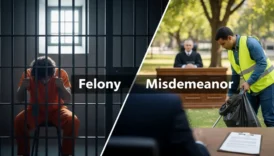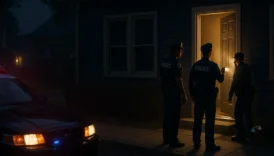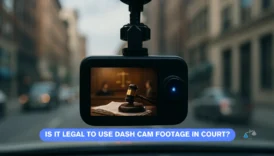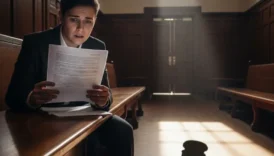What Are My Rights During a Police Stop?
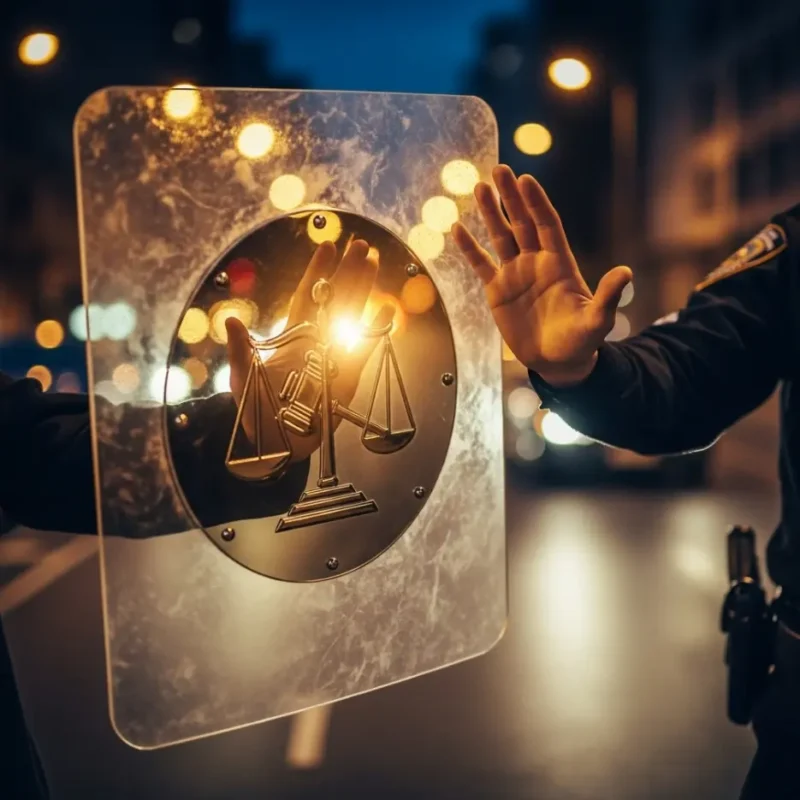
Being stopped by the police can be stressful and intimidating, whether you are driving, walking, or simply in a public place. However, knowing your legal rights during a police stop is essential to protect yourself and ensure that the interaction remains lawful. These rights are designed to balance law enforcement’s duty to maintain public safety with citizens’ constitutional protections, such as the Fourth and Fifth Amendments in the United States. Understanding what you can—and cannot—do during a police stop can prevent misunderstandings, reduce risks, and help safeguard your freedoms.
The Legal Basis of Police Stops
Police stops are regulated by constitutional principles and case law that define when and how law enforcement officers may detain individuals. In the United States, the Fourth Amendment provides protection against unreasonable searches and seizures, meaning that officers must have a valid legal reason—known as reasonable suspicion or probable cause—to stop someone.
Reasonable Suspicion vs. Probable Cause
- Reasonable Suspicion:
- A lower legal standard.
- Officers must have specific, articulable facts suggesting that someone may be involved in criminal activity.
- Example: A person pacing nervously outside a closed store late at night may justify a brief stop for questioning.
- Probable Cause:
- A higher legal standard required for arrests and more intrusive searches.
- Officers must have enough evidence to reasonably believe a crime has been committed.
- Example: Smelling marijuana during a traffic stop could establish probable cause to search the vehicle.
Key Case: Terry v. Ohio (1968)
The U.S. Supreme Court held that police may stop and briefly detain a person based on reasonable suspicion of criminal activity. This decision created what’s commonly known as a “Terry stop”, allowing officers to conduct a limited pat-down (frisk) for weapons if they believe the individual is armed and dangerous.
Types of Police Stops
- Traffic Stops:
- Officers may stop a vehicle for traffic violations (e.g., speeding, broken taillight) or if they suspect criminal activity.
- Pedestrian Stops:
- Individuals walking in public can be stopped if officers have reasonable suspicion of wrongdoing.
- Investigative Detentions:
- Short detentions for questioning that must be temporary and limited in scope.
Constitutional Safeguards
- Stops must be brief and narrowly tailored to the circumstances.
- Unreasonable delays or overly aggressive questioning may turn a stop into an unlawful detention.
- Individuals are protected from arbitrary or discriminatory stops (such as those based solely on race or appearance).
Example Scenario
A driver is pulled over for a broken headlight. During the stop, the officer notices the smell of alcohol and observes slurred speech. The initial stop was legal based on the traffic violation, and the officer now has probable cause to conduct a sobriety test.
Key Takeaway
Police cannot stop you at random. They must have reasonable suspicion supported by facts, not just a hunch. Knowing this helps you recognize when a stop is lawful and when your rights may be violated.
Your Right to Remain Silent
One of the most important protections during a police stop is the right to remain silent. This right stems from the Fifth Amendment of the U.S. Constitution, which safeguards individuals from self-incrimination. While you must comply with certain basic identification requirements (depending on the jurisdiction), you are generally not obligated to answer questions that could be used against you in a criminal investigation.
The Core of the Right
- You have the right to refuse to answer most questions asked by police.
- This includes questions like:
- “Where are you going?”
- “Have you been drinking?”
- “Do you know why I pulled you over?”
- Politely stating, “I am exercising my right to remain silent”, is usually enough to invoke this protection.
Miranda Rights and Police Stops
- Miranda v. Arizona (1966) established that individuals in custody must be informed of their rights, including the right to remain silent and the right to an attorney.
- Important distinction: During a simple stop (such as a traffic stop), police do not need to issue a Miranda warning unless you are taken into custody and subject to interrogation.
When Silence Can Be Misinterpreted
- While you can remain silent, refusing to identify yourself when required by law (in certain states under “stop and identify” statutes) may lead to legal consequences.
- Courts have upheld that silence alone is not enough to justify arrest, but failing to comply with lawful identification requirements can complicate matters.
Example Scenario
You are pulled over for speeding. The officer asks if you know how fast you were going. Instead of admitting guilt, you calmly state, “Officer, I prefer not to answer any questions. I will comply with providing my license and registration.” You have fulfilled your legal duty without self-incrimination.
Practical Tips
- Stay Polite: Exercise your rights calmly and respectfully to avoid escalating the situation.
- Limit Responses: Provide required identification, but avoid volunteering additional information.
- Ask for a Lawyer: If questioning becomes serious, you have the right to request an attorney before speaking further.
Your right to remain silent is a powerful safeguard during police encounters. While you must follow identification laws, you do not have to answer questions that could implicate you. Exercising this right properly can protect you from self-incrimination and strengthen your position if charges arise later.
Your Right to Refuse a Search
Another fundamental protection during a police stop is the right to refuse a search. This right comes from the Fourth Amendment, which guards against unreasonable searches and seizures. Unless police have probable cause, a valid warrant, or fall within a recognized exception, they cannot search your person, vehicle, or belongings without your consent.
General Rule: Consent Matters
- Police often ask questions like, “Do you mind if I take a look in your car?”
- If you say yes, you are giving consent, and anything found can be used as evidence.
- If you say no, police generally cannot proceed unless another legal justification exists.
When Police Can Search Without Consent
- Probable Cause:
- If officers see, smell, or hear something that strongly suggests criminal activity (e.g., smell of marijuana, visible contraband), they may conduct a search.
- Search Incident to Arrest:
- If you are lawfully arrested, police may search you and your immediate surroundings for weapons or evidence.
- Exigent Circumstances:
- In emergencies—like preventing evidence destruction—police may search without consent or a warrant.
- Plain View Doctrine:
- If illegal items are clearly visible, officers can seize them without a warrant.
Vehicle Searches
- Vehicles receive less privacy protection than homes.
- If an officer has probable cause (e.g., spotting drug paraphernalia), they may search the car without your permission.
- However, absent probable cause, you can refuse a request to search your vehicle.
Practical Example
You are stopped for a minor traffic violation, and the officer asks, “Can I look inside your trunk?” You calmly respond, “I do not consent to any searches.” Unless the officer has probable cause or another exception applies, they must respect your refusal.
Why Refusing Is Important
- Saying “no” preserves your legal rights.
- Even if you have nothing to hide, consenting can open the door to broader searches and potential misunderstandings.
- If evidence is obtained without proper consent or justification, your attorney can challenge its admissibility in court.
Key Takeaway
You have the right to refuse searches during a police stop. Unless officers have probable cause, a warrant, or fall under an exception, your refusal must be honored. Exercising this right politely and clearly is one of the most effective ways to protect your constitutional freedoms.
Identification Requirements During a Stop
One of the most common questions during a police stop is whether you must provide identification. The answer depends largely on the jurisdiction and the circumstances of the stop. In the U.S., this issue is guided by “stop and identify” statutes, which vary by state.
When You Must Provide Identification
- Driving a Vehicle:
- If you are stopped while driving, you are legally required to provide your driver’s license, vehicle registration, and proof of insurance when asked.
- Stop and Identify States:
- Some states require individuals to identify themselves during lawful stops if police have reasonable suspicion of criminal activity.
- Refusing in these states may result in arrest or additional charges.
- Non-Stop and Identify States:
- In states without such laws, you generally do not have to provide identification unless you are driving or under arrest.
Supreme Court Guidance
In Hiibel v. Sixth Judicial District Court (2004), the Supreme Court upheld the constitutionality of “stop and identify” statutes. This means that if state law requires you to provide your name during a lawful stop, refusing can lead to legal consequences.
What You Don’t Have to Provide
- Beyond basic identification (name, license, registration if driving), you usually do not have to answer additional questions about where you’re going, what you’re doing, or who you’re with.
- You can politely state: “I am providing my identification, but I choose not to answer further questions.”
Example Scenarios
- Traffic Stop: A driver is pulled over for speeding. The officer requests license and registration. The driver must provide these documents.
- Pedestrian Stop in a Stop-and-Identify State: Police stop someone for suspicious behavior and request their name. The person must provide it under state law.
- Pedestrian Stop in a Non-Stop-and-Identify State: The same situation occurs, but in a state without such laws. The person may legally decline to provide ID, though remaining calm and polite is important.
Practical Advice
- Always provide documents required by law (driver’s license, registration, insurance).
- If unsure whether your state has “stop and identify” laws, it’s often safer to give your name while avoiding further questions.
- Keep interactions polite to avoid escalating the situation, even if you believe you are within your rights.
Rights of Passengers in a Vehicle Stop
When police stop a vehicle, the rights of passengers are slightly different from those of the driver, but they are equally important. Passengers often wonder if they must comply with police requests, whether they can leave, and what protections apply to them during the encounter.
Do Passengers Have to Provide Identification?
- General Rule: Passengers are not automatically required to show ID unless the officer has reasonable suspicion that the passenger has committed a crime or is involved in unlawful activity.
- Stop-and-Identify States: If the stop occurs in a state with these laws and the officer has reasonable suspicion, the passenger may be required to give their name.
- Traffic-Related Duties: Since passengers are not responsible for the vehicle’s operation, they do not need to provide registration or proof of insurance.
Can Passengers Be Ordered Out of the Vehicle?
- The U.S. Supreme Court has ruled that officers may legally order passengers to exit a vehicle during a traffic stop for safety reasons.
- While this can feel intrusive, refusing could escalate the situation. Compliance is generally advisable, though you still retain your constitutional rights.
Passenger Rights During the Stop
- Right to Remain Silent: Passengers, like drivers, can decline to answer police questions beyond providing identification if legally required.
- Right to Refuse a Search: Unless police have probable cause, passengers can refuse searches of their personal belongings (like bags or purses).
- Right Against Unreasonable Detention: Passengers cannot be held longer than necessary for the traffic stop unless officers develop reasonable suspicion of other criminal activity.
Example Scenario
You are a passenger in a car pulled over for speeding. The officer asks for your ID. If you are in a state without “stop and identify” laws and there is no reasonable suspicion of your involvement in a crime, you may politely decline. However, if the officer orders everyone out of the vehicle, you must comply with that order, though you can remain silent and refuse consent to search your belongings.
Practical Tips for Passengers
- Stay calm and avoid sudden movements.
- Ask politely, “Am I free to leave?” If yes, you may walk away from the scene.
- Keep personal items close to prevent them from being searched without consent.
- Remember that while you may not have the same obligations as the driver, you still have protections under the Constitution.
What to Do If Police Suspect You of a Crime
A routine police stop can quickly become more serious if officers begin to suspect you of committing a crime. In these situations, it’s crucial to know your rights and how to exercise them calmly and effectively. Missteps could lead to self-incrimination or escalation, while informed actions can protect you legally.
Stay Calm and Respectful
- Sudden movements, aggressive language, or confrontational behavior can escalate suspicion.
- Keep your hands visible at all times, especially during vehicle stops.
- Address officers politely, even if you feel the suspicion is unfair.
Do Not Volunteer Information
- You are not required to explain your activities beyond basic identification requirements.
- Answering questions like “Where are you coming from?” or “Have you been drinking?” may unintentionally provide incriminating information.
- Politely state: “I choose to remain silent and would like to speak with a lawyer.”
Refuse Searches Without a Warrant
- Officers may ask for permission to search your car, bags, or person. Unless they have probable cause, a warrant, or an applicable exception, you can decline.
- Say clearly: “I do not consent to a search.”
If You Are Arrested
- Invoke Your Right to Remain Silent: Do not answer questions beyond providing your name and identifying information.
- Request a Lawyer Immediately: You have the right to legal counsel before interrogation.
- Do Not Resist Arrest: Even if you believe it’s unjust, resisting can lead to additional charges and greater risk.
Example Scenario
You are stopped because your car matches the description of one involved in a burglary. The officer begins asking probing questions about where you were earlier in the evening. Instead of offering explanations, you provide your license and registration, remain silent about other details, and calmly state you want to speak with an attorney if questioning continues.
Why These Steps Matter
- Anything you say can be used against you later in court.
- Declining searches preserves your right to challenge unlawful evidence collection.
- Requesting an attorney ensures you have professional guidance through the process.
Recording Police Encounters: Is It Legal?
With smartphones in nearly everyone’s pocket, recording police encounters has become increasingly common. These recordings can provide accountability, protect individuals from misconduct, and serve as evidence in court. However, the legality of recording police depends on consent laws, the setting, and whether the recording interferes with law enforcement duties.
General Right to Record in Public
- In the U.S., courts have repeatedly affirmed that citizens have a First Amendment right to record public officials performing their duties in public spaces.
- This means you can usually record police during traffic stops, protests, or street encounters as long as you do not interfere with their work.
Consent Laws Still Apply
- One-Party Consent States: You can record a conversation you are part of without informing the officer.
- Two-Party Consent States: If audio recording captures private conversations, you may need consent. However, most courts recognize a distinction between public interactions with police and private conversations.
Limits on the Right to Record
- No Interference:
- You cannot obstruct officers while recording. Standing too close, arguing, or refusing lawful commands may result in arrest.
- Time, Place, and Manner Restrictions:
- Police can impose reasonable restrictions, such as asking you to step back for safety, but they cannot stop you simply because they dislike being recorded.
- Seizure of Devices:
- Officers generally cannot seize or delete your recordings without a warrant. Doing so violates constitutional protections.
Example Scenario
You witness a traffic stop and begin recording from the sidewalk. An officer tells you to move further back for safety, which is a lawful request. If the officer instead orders you to stop recording entirely, that demand likely violates your First Amendment rights.
Court Recognition of Recording Rights
- Several federal appellate courts (including the First, Third, Seventh, Ninth, and Eleventh Circuits) have affirmed the public’s right to record police in public spaces.
- While not yet universally decided by the U.S. Supreme Court, this principle is widely accepted across jurisdictions.
Practical Advice
- Keep a safe distance while recording.
- Announce calmly if you are recording, especially in states with stricter consent laws.
- Do not interfere with police duties—focus on documenting, not engaging.
What Happens If Your Rights Are Violated?
Even when you know and assert your rights during a police stop, there are times when officers may overstep their authority. If your constitutional rights are violated, the law provides mechanisms to challenge that misconduct and seek remedies.
Common Violations During Police Stops
- Unlawful Searches: Searching your car, bag, or person without consent, probable cause, or a warrant.
- Prolonged Detention: Holding you longer than necessary for the stated reason of the stop.
- Discriminatory Stops: Targeting individuals based solely on race, ethnicity, or appearance.
- Retaliation for Exercising Rights: Arresting or harassing someone simply because they refused to answer questions or recorded the encounter.
Legal Consequences for Police Misconduct
- Suppression of Evidence (Exclusionary Rule):
- Evidence obtained through unlawful searches or seizures may be excluded in court.
- For example, drugs found in a car after an illegal search cannot be used to prosecute the defendant.
- Civil Lawsuits:
- Victims may file lawsuits under Section 1983 of the U.S. Code for violations of constitutional rights.
- Successful claims can lead to monetary compensation and sometimes punitive damages.
- Internal Complaints:
- You can file a complaint with the police department’s internal affairs division or civilian review board.
- While not always resulting in immediate change, these complaints contribute to accountability records.
- Criminal Charges Against Officers:
- In extreme cases of misconduct (e.g., excessive force), officers may face criminal prosecution.
Example Scenario
You are stopped for a broken taillight. The officer, without asking or having probable cause, searches your trunk and finds unrelated items. In court, your lawyer challenges the legality of the search. The judge rules the evidence inadmissible because your Fourth Amendment rights were violated.
What You Should Do If Rights Are Violated
- Stay Calm During the Incident: Arguing on the spot may escalate the situation.
- Document Everything: Write down details as soon as possible—time, location, officer names, badge numbers.
- Keep Evidence Safe: If you recorded the encounter, save the file securely.
- Contact a Lawyer Immediately: Legal professionals can advise on next steps, including motions to suppress evidence or filing civil suits.
Practical Tips for Handling Police Stops Safely
Knowing your rights is essential, but how you exercise them during a police stop can make the difference between a calm encounter and a potentially dangerous escalation. These practical strategies help you protect your legal rights while staying safe.
Stay Calm and Composed
- Take a deep breath and remain polite.
- Avoid sudden movements—keep your hands visible at all times.
- If driving, place your hands on the steering wheel until instructed otherwise.
Comply With Basic Requests
- Provide your driver’s license, registration, and proof of insurance when required.
- Step out of the vehicle if lawfully ordered to do so.
- Even when asserting your rights, remain cooperative in tone and manner.
Assert Your Rights Clearly but Respectfully
- Use calm phrases such as:
- “I do not consent to a search.”
- “I am exercising my right to remain silent.”
- “Am I free to leave?”
- Avoid hostile or confrontational language, which can escalate tensions.
Document the Encounter
- If possible, record the interaction on your phone or ask a passenger to do so.
- Note the officer’s badge number, name, and patrol car number.
- Save receipts, tickets, or paperwork provided by the officer.
Avoid Self-Incrimination
- Do not admit to violations or crimes, even casually.
- For example, when asked, “Do you know why I stopped you?”—responding with, “I may have been speeding,” could be used against you later.
- Instead, politely decline to answer beyond providing identification.
Plan Ahead
- Familiarize yourself with your state’s consent and identification laws.
- Teach teenagers or young drivers how to handle stops properly.
- Keep essential documents organized and easily accessible in your car.
Example Interaction
You are pulled over for a traffic violation. You roll down your window, keep your hands visible, and provide your license and registration when requested. When asked if the officer can search your car, you politely say, “I don’t consent to searches.” Throughout the stop, you remain calm, respectful, and careful not to volunteer unnecessary information.
Final Thoughts on Exercising Your Rights
Understanding your rights during a police stop is more than just memorizing laws—it’s about knowing how to apply them in real situations. The Constitution provides powerful protections, but the way you exercise those rights in practice greatly affects the outcome of any encounter.
Balancing Rights and Cooperation
- While you should never waive your rights unnecessarily, outright hostility or refusal to cooperate with lawful orders can escalate the situation.
- Striking a balance—complying with basic legal requirements while calmly asserting your rights—is usually the safest approach.
- Remember: Protecting your rights does not mean provoking officers.
The Importance of Clarity
- Being clear and respectful helps prevent misunderstandings.
- Statements like “I do not consent to a search” or “I choose to remain silent” signal your intentions without confrontation.
- Avoid vague or sarcastic comments that could be misinterpreted.
Long-Term Protection vs. Short-Term Frustration
- Even if you feel your rights are being ignored in the moment, it is better to stay calm and resolve the issue later in court.
- Resisting or arguing on the spot can lead to unnecessary charges or physical risk.
- Documenting the incident and working with a lawyer afterward is often the most effective path to justice.
Why Knowledge Empowers You
- Police stops are common experiences that can happen to anyone, regardless of guilt or innocence.
- Knowing your rights reduces fear and confusion, helping you respond rationally instead of emotionally.
- Awareness also discourages misconduct, as officers are more cautious when they know individuals understand the law.
A Practical Philosophy
Think of police stops as a test of both law enforcement’s authority and your ability to handle stress. Your best tools are:
- Knowledge — understand what rights apply in your jurisdiction.
- Composure — remain calm and respectful, no matter the situation.
- Consistency — assert your rights the same way every time, without aggression.
Ultimately, exercising your rights wisely protects not only your legal position but also your safety and dignity.
Frequently Asked Questions (FAQs)
1. Do I have to answer police questions during a stop?
No. Beyond providing required identification, you have the right to remain silent and decline to answer additional questions.
2. Can police stop me without a reason?
No. Officers need at least reasonable suspicion of a violation or crime to lawfully stop you.
3. Do I have to let police search my car or belongings?
Not unless they have probable cause, a warrant, or fall under an exception. You can politely refuse consent to a search.
4. What should I do if I feel unsafe during a stop?
Stay calm, keep your hands visible, comply with lawful commands, and if possible, record the encounter. You can address misconduct later through legal channels.
5. Can police order me out of my vehicle?
Yes. Courts have ruled that officers may order drivers and passengers out of a vehicle during a lawful stop for safety reasons.
6. Do I always have to show ID?
Drivers must always show their license and registration. Pedestrians may only need to provide ID in states with “stop and identify” laws, and only if there is reasonable suspicion.
7. Can I record police during a stop?
Yes, as long as you do not interfere with their duties. Courts generally recognize a First Amendment right to record public officials.
8. What happens if police violate my rights?
Illegally obtained evidence can be excluded in court, and you may file civil lawsuits or complaints against the officers involved.
9. Should I resist if I think a stop is unlawful?
No. Resisting can lead to additional charges. Instead, comply in the moment and challenge the stop later with legal assistance.
10. What’s the safest way to handle any police stop?
Stay calm, be polite, comply with lawful requests, and assert your rights clearly and respectfully.



